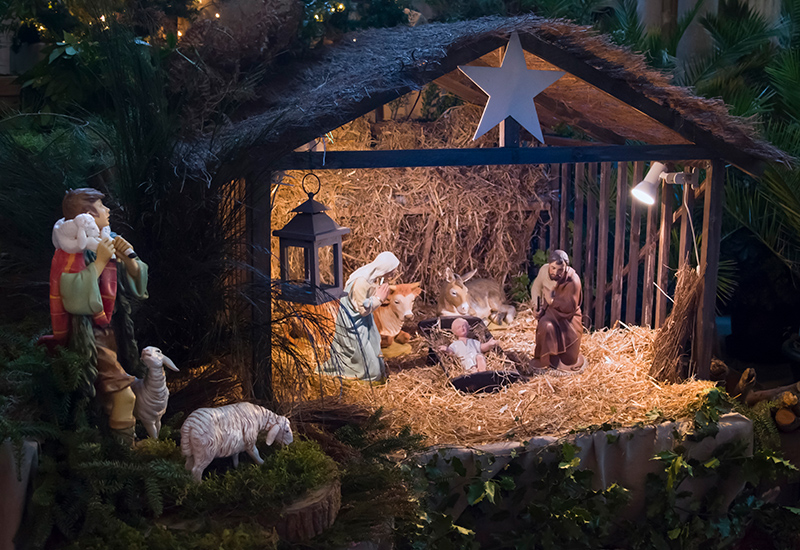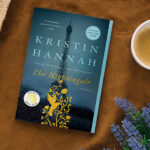How to have a Merry Portuguese Christmas
Christmas in Portugal is a time for family, food, and celebration. While it’s similar to festivities taking place in other countries, there are notable differences that make Christmas here a particularly joyous time – especially for our Portuguese friends.
The ‘official’ start of the Christmas season is 8 December, the Day of the Immaculate Conception. It’s a national holiday, honouring Mother Mary, and the day many people start dressing their homes with Christmas decorations. There’s no firm rule around this of course; others start on 1 December or even earlier. Father Christmas (Pai Natal) and his grotto arrived at MAR shopping mid-November and will be there until 24 December, after which he will make a speedy exit to start his frenetic journey around the world, delivering presents and goodwill.
While Christmas trees feature prominently in many houses, pride of place is usually given to the presépio (nativity scene). The presépio is taken seriously and rightly so. It is often adorned with handmade ornaments and figurines passed down from generation to generation. The presépio will include both religious figurines (Mary and Joseph) and cultural, with farmers and oranges featuring prominently. Baby Jesus isn’t added until Christmas Eve when the children aren’t looking, so the little ones get to experience the ‘miracle’ of his sudden arrival. Christmas decorations often include shoes (as opposed to Christmas stockings), as a means to give and receive gifts.
Portugal’s love of nativity scenes has even entered The Guinness of Records. In 2012, the town of São Paio de Oleiros was recognised for hosting the largest moving nativity scene in the world, with an amazing 7,500 artefacts. Today, one of the most impressive (and biggest) nativity scenes can be seen here in the Algarve, in Vila Real de Santo António.
The main Christmas meal is a hearty one, called consoada. Eaten on the evening of the 24th, it’s the high point of the Christmas festivities. The consoada typically comprises starters, a main course, dessert, and a plentiful supply of wine. The starters are likely to be fish-based savoury dishes such as bolinhos de bacalhau (cod dumplings) or rissóis de camarão (shrimp patties). The main meal of bacalhãu de consoada (Christmas cod) consists of bacalhau, cabbage, boiled eggs, and boiled potatoes, all presented with lashings of olive oil.
Desserts, and particularly sweet pastries, are a big part of the dinner and often the more indulgent aspect. Fatias douradas (French toast with a wine sauce) is a popular treat along with sonhos (doughnuts) and azevias do grão e amêndoa (a thin dough crammed with fried chickpeas and almonds).
A Portuguese friend told me how each region (and each family) nurtures its own traditions and dishes. “In the north of the country and here in the Algarve, the meal might include octopus or shrimp. Bacalhau, turkey or rooster, are usually the preferred options for the main course.”
Presents are typically opened immediately after the consoada or early the following morning. Christmas Day is often an opportunity to meet with members of the extended family, uncles, aunts, and cousins. The day after Christmas – Boxing Day as we say in the UK – has no particular significance and is not a public holiday.
The Portuguese friends I spoke with talked fondly of Christmas back in their hometowns in central and northern Portugal and the connections with the church and the midnight mass, known as Missa do Galo (the Rooster’s Mass). In certain parts of Portugal, it’s not uncommon for there to be a large communal fire in the church car park, giving everyone a chance to meet with friends and neighbours, and wish each other ‘Feliz Natal’ (Merry Christmas).
Many people return to work on 26 December, if not on Christmas Day itself. I was reminded by Maria of the boutique store, Palmas Douradas, that “Christmas has different meanings for so many people. For some, it will be focused on the church, while others will take pleasure from simply seeing others enjoying themselves. And of course, for some people both here and abroad, it can be a difficult time.”
As we count down the days to Christmas, let’s spare a thought for everyone, both here in Portugal and elsewhere, and wish them ‘Um feliz e saudável Natal e Ano Novo.
Wishing you a very Merry Portuguese Christmas (Desejando-lhe um Feliz Natal Português)
Boas festas – Happy holidays
Feliz Natal – Merry Christmas
Feliz Ano Novo – Happy New Year
Tenha ótimas férias de Natal – Have a great Christmas vacation
Um feliz e saudável Natal e Ano Novo – A happy and healthy Christmas and New Year













